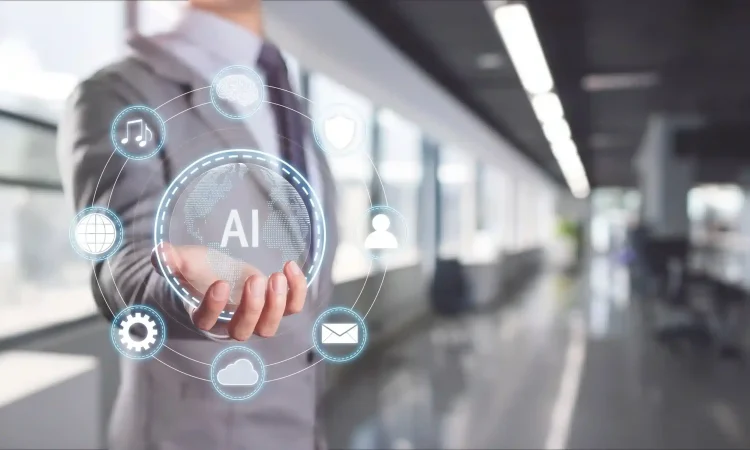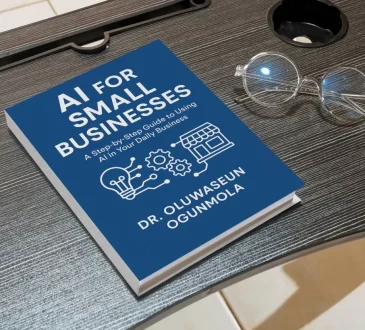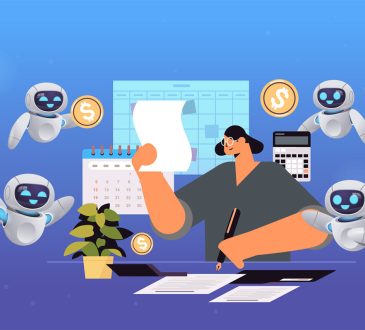
As the business world evolves, Artificial Intelligence (AI) has emerged as a game-changer, reshaping strategies, operations, and growth. By 2025, AI is no longer just a futuristic concept or a tool for tech companies. It has become a central force for organizations across industries—retail, finance, healthcare, manufacturing, and more—helping them gain a competitive edge, streamline processes, and unlock new opportunities.
AI-Powered Decision Making
One of the most impactful ways businesses are leveraging AI is through smarter decision-making. Modern AI systems can analyze massive amounts of data in real time, spotting patterns and trends that humans might easily miss.
Businesses are using predictive analytics and machine learning models to anticipate market shifts, forecast demand, and fine-tune pricing strategies.
Examples:
- Retail giants use AI algorithms to predict consumer behavior, determine which products will be in demand, and personalize marketing campaigns.
- Financial institutions rely on AI to assess credit risks, detect fraud, and provide personalized investment advice.
By integrating AI into decision-making, businesses can make informed choices, reduce mistakes, and respond quickly to market changes.
Enhancing Customer Experience
AI is also transforming the way businesses connect with customers. In 2025, consumers expect seamless, personalized interactions—and AI helps deliver exactly that.
- Chatbots and virtual assistants, powered by natural language processing, now handle complex queries, provide instant support, and learn from past interactions to improve responses.
- AI-driven personalization ensures that consumers receive content, offers, and recommendations tailored to their preferences.
For example, streaming platforms, e-commerce websites, and travel companies are using AI to create curated experiences that boost satisfaction and loyalty. Businesses that integrate AI into their customer engagement strategies often see higher retention, increased sales, and stronger brand affinity.
Operational Efficiency and Automation
Efficiency is a key driver of growth, and AI helps businesses streamline operations like never before. Automation powered by AI reduces repetitive tasks, freeing employees to focus on higher-value activities.
Applications across industries:
- Manufacturing: AI-driven robotics and predictive maintenance minimize downtime and optimize production.
- Supply Chain: AI forecasts demand, monitors inventory, and detects disruptions early.
- Services: Insurance companies process claims faster, healthcare providers streamline administrative work, and logistics firms optimize delivery routes in real time.
By automating routine tasks, businesses save time, reduce costs, and improve scalability—creating a more agile and productive environment.
Innovation and New Business Models
AI isn’t just enhancing existing processes—it’s driving entirely new business models. Companies in 2025 are exploring innovative ways to deliver products, services, and revenue streams.
Examples:
- AI-powered design tools speed up product development.
- Analytics platforms provide actionable insights for clients.
- Startups offer remote diagnostics and personalized healthcare plans.
- Fintech companies provide AI-driven portfolio management that adjusts automatically to market changes.
This wave of innovation opens doors to new markets and reshapes how value is delivered to customers.
Data-Driven Marketing Strategies
Marketing has become smarter thanks to AI. Businesses can now analyze consumer behavior, track engagement, and predict trends to maximize ROI.
- Programmatic advertising targets the right audience at the right time.
- AI-powered content creation helps deliver relevant messaging efficiently.
- Campaigns can be tested and optimized automatically, reducing wasted ad spend.
Companies that adopt AI in marketing often see faster customer acquisition, higher conversion rates, and stronger brand recognition.
Workforce Transformation and Upskilling
AI is changing how employees work. With repetitive tasks automated, teams can focus on strategic, creative, and analytical roles.
Organizations are investing in upskilling programs to ensure employees can collaborate effectively with AI systems. This approach delivers a dual benefit:
- Enhanced productivity
- A more engaged workforce
Human-AI collaboration is becoming a cornerstone of sustainable business growth, allowing workers to contribute to problem-solving, innovation, and customer engagement.
Challenges and Ethical Considerations
While AI offers huge opportunities, businesses must also address challenges like data privacy, algorithmic bias, and transparency.
Leading organizations in 2025 are implementing frameworks for responsible AI, emphasizing:
- Fairness
- Accountability
- Transparency
By proactively managing these concerns, companies build trust, strengthen their reputation, and set the stage for long-term success.
Looking Ahead
AI continues to mature and reshape business growth. Companies that adopt AI strategically can:
- Outperform competitors
- Achieve higher efficiency
- Deliver exceptional customer experiences
From predictive analytics to workforce transformation, AI is no longer a supplementary tool—it’s a core driver of strategy and growth in 2025.
In conclusion, businesses that embrace AI responsibly, focus on human-AI collaboration, and innovate continuously are positioned to thrive in the coming years. AI is not just shaping the future of business—it is actively driving it.




